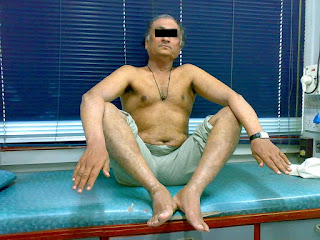Chronic kidney disease (CKD) with Diabetes mellitus

Description: Chronic kidney disease (CKD), or chronic renal failure, is defined as a gradual loss of kidney function. As the disease becomes more severe, the kidneys can find it hard to remove waste and excess water from the body. A waste build-up can lead to other health problems, such as high blood pressure, anemia, nerve damage and poor nutritional health. Patients with CKD often suffer from fatigue and lack of energy, which, in turn, reduces their levels of physical activity. The final stage of kidney disease is known as end-stage renal disease (ESRD), or kidney failure. This is when the kidneys stop working completely. At this point, a patient would require dialysis - a form of treatment that replicates some functions of a working kidney - or a kidney transplant to maintain life. CKD is generally accompanied with hypertension and Diabetes mellitus. Rates of diabetes have increased markedly over the last 50 years in parallel with obesity. As of 2010 there are approximately 285 m...

